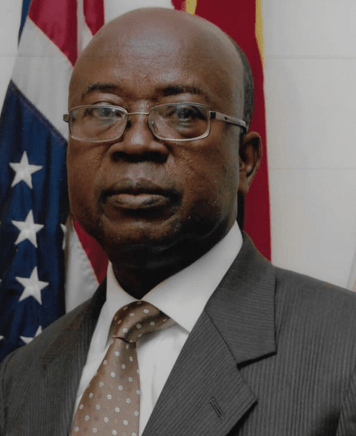By Kingsley LARBI( Rev. Prof.)
Chapter 28 of Born to Win recounts an inspiring journey, the embryonic stages of Central University. What began as a modest ministerial training institute in a car garage at Dansoman has evolved into one of Ghana’s premier private universities.
The story, enriched by the leadership of Dr. Mensa Otabil and his dedicated team, mirrors Ghana’s broader educational ambitions and the transformative power of vision-driven leadership.
The Humble Beginnings
In 1988, the International Central Gospel Church (ICGC) established the ICGC Ministerial Training Institute to provide short-term pastoral training. The first cohort of twelve students, housed in a rented car garage at House No. D91 in Dansoman, began their journey with courses designed to inspire and deepen devotional practices.
Under the presidency of Dr. Mensa Otabil, alongside Rev. William Obeng-Darko (Dean) and Rev. Eric Kwapong, the institute laid a foundation rooted in spiritual empowerment.
This early phase underscores the resourceful spirit that drives Ghana’s education sector. In a nation where private tertiary education caters to nearly 27% of total enrollment (Ghana Statistical Service, 2023), institutions like Central University have significantly reduced the burden on public universities.
A Strategic Transformation
When Rev. Dr. E.K. Larbi joined in March 1990, the institute began its metamorphosis. Under his leadership, the institute was rebranded as the Central Bible College. By introducing rigorous academic courses such as biblical hermeneutics and recruiting part-time lecturers with advanced theological training, the college diversified its offerings. The addition of an Advanced Certificate in Christian Ministries signaled the institute’s aspiration for academic excellence.
This strategic growth paralleled Ghana’s educational reforms in the 1990s. Between 1990 and 2000, the country experienced an 11.2% annual increase in tertiary enrollment, driven by private institutions filling critical gaps.
Navigating Financial Hurdles
Financing was a persistent challenge. Plans to enroll faculty in Oral Roberts University’s extension program were shelved due to high costs. The experience reflects the broader issue of funding in Ghanaian higher education.
According to the 2022 National Budget, the education sector received GHS 17.8 billion, only 12.9% of the total budget, leaving private institutions reliant on tuition fees and donations.
Rev. Larbi’s innovative fundraising idea, the “Gideon’s Army of Patrons,” aimed to secure consistent financial support. Though it faced challenges, it laid the groundwork for future efforts like the Distinguished Partners Project in 1997.
Expanding Horizons
By 1992, the institute’s relocation to a new building in Akokɔfoto, Dansoman, marked a turning point. The introduction of a Diploma in Christian Ministries and plans for a BA in Theology highlighted its growing ambition. With Ghana’s tertiary enrollment rising to 1.6 million students by 2023 (World Bank), the demand for quality education continues to grow, validating such expansions.
Leadership and Vision
Leadership transitions played a pivotal role. When Rev. Dr. Larbi left for doctoral studies in 1991, Rev. Paa Ekow Quaye admirably held the fort. The eventual recruitment of Rev. John Ghartey ensured continuity. Dr. Otabil’s unwavering support, including financial assistance for Rev. Ghartey’s return from Nairobi, underscores the critical role of visionary leaders in institutional development.
Lessons for Contemporary Ghana
Resilience in Adversity: The institute’s evolution from a garage to a university exemplifies how resourcefulness and commitment can overcome financial and logistical constraints.
Leadership Investment: Dr. Otabil’s foresight in supporting faculty development aligns with the best global practices where institutional growth is tied to human capital investment.
- Private Sector Contributions:
Private universities like Central University enroll over 15% of Ghana’s tertiary students, and their role in national development cannot be overstated.
- Innovative Financing:
The Gideon’s Army initiative highlights the potential of grassroots fundraising to support educational institutions.
Central University Today
Today, Central University stands as a testament to the power of visionary leadership. Offering diverse programs in business, theology, and healthcare, it serves thousands of students. As Ghana’s economy grows at an average of 4.2% annually (2023, IMF), the university continues to equip graduates to contribute to sectors like banking, agriculture, and technology.
Conclusion
Chapter 28 of Born to Win is not just a historical account; it is a blueprint for transformation. In the face of contemporary challenges such as funding gaps, rising operational costs, and increasing student demands, Central University’s journey inspires.
It demonstrates that with determination, strategic leadership, and divine guidance, institutions can transcend humble beginnings to shape a brighter future for generations to come.










